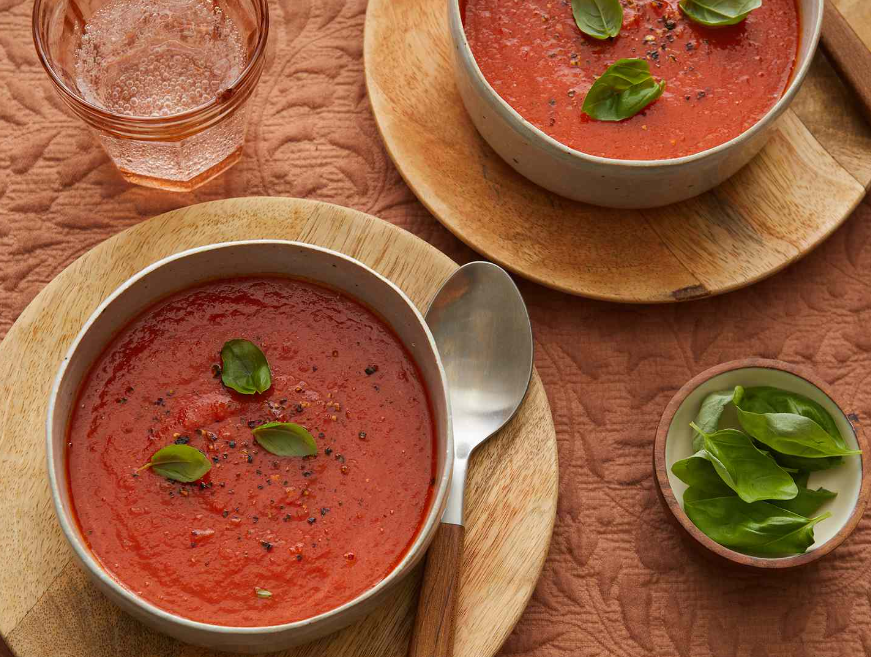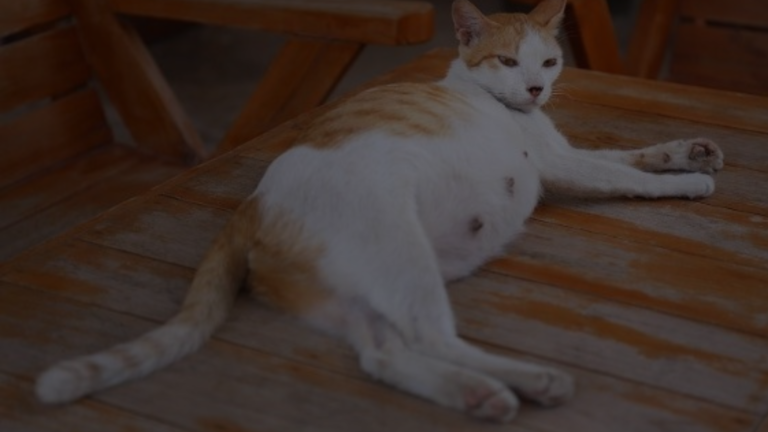Tomato soup, steaming and fragrant, is a classic comfort food. But for our feline friends, the picture gets murky. Can cats have tomato soup? The answer, like a playful cat, darts between “meow-y delicious” and “dangerously spicy.”
Did you know that cats, with their sensitive noses, can detect certain chemicals in tomatoes that are invisible to us? This keen sense of smell is both a blessing and a curse when it comes to this tempting treat. Let’s delve into the world of cats and tomato soup, separating the perfectly safe from the positively poisonous.
So, buckle up, curious cat owners! We’re about to embark on a journey through tomato fields, soup kitchens, and the fascinating world of feline cuisine. Prepare for whisker-twitching surprises and purr-fectly safe snacking solutions.
The Tomato: Friend, Foe, or Fuzzy Enigma?
The juicy, red flesh of a ripe tomato may tempt even the most finicky feline. But hold your horses (or, more accurately, your leash)! When it comes to tomatoes and cats, the story takes a twisty turn.

The Good News:
- Ripe for the Picking: Those sunshine-hued tomatoes gracing your counter? They’re not toxic to your furry friend! They pack a tiny punch of vitamins A and C, beneficial for healthy eyes and skin.
- Tomatoes in Tuxedos: Surprised? Some commercial cat food even uses tomato paste as a natural sweetener and source of antioxidants. Of course, moderation is key here too.
The Not-So-Good News:
- Solanine’s Shadow: While the ripe fruit is fine, a sinister villain lurks elsewhere in the tomato world – solanine. This toxin, concentrated in green tomatoes and the plant’s leaves and stems, can wreak havoc on a cat’s digestive system.
- Vine of Woe: So, toss those cherry tomato stems! Solanine levels are highest in these leafy parts, making them a definite no-go for your curious cat.
So, before you share your steaming soup, remember: ripe tomatoes themselves are a friend, but the rest of the plant is a foe. Keep those paws away from the green bits, and let’s explore the murky world of tomato soup next!
Can Cats Have Tomato Soup?
- Red, ripe tomatoes? Not toxic for your feline friend, even offering some vitamins. But hold the applause!
- The real villain: Solanine, lurking in green tomatoes and leafy parts. This toxin gives cats tummy troubles, so keep those paws off the vines!
- Tomato soup? Tempting, but tread carefully. Most store-bought versions are packed with cat no-nos like salt, onion, and spices. These can lead to dehydration, anemia, and even worse.
- Homemade hope: A tiny lick of plain, homemade soup (no nasties!) might be an occasional treat. But remember, moderation is key!
- Bottom line: When it comes to cats and tomato soup, it’s best to stick with their regular food. Keep the soup for yourself and enjoy the purrs that come from a full, safe kitty belly!
Homemade vs. Commercial
While commercial tomato soup is a resounding “no” for our feline friends, a tiny sip of homemade heaven might just be the perfect occasional treat. But hold on, paw-rents! Before you whip up a whisker-licking batch, let’s navigate the minefield of safety with caution.

The Homemade Hope:
- Plain and Simple: Forget fancy spices and creamy swirls. Keep it plain, with just tomatoes, water, and maybe a pinch of salt (less is more!). Onion and garlic are big no-nos, so stick to the basics.
- A Tiny Taste: A teaspoon or two is plenty. Remember, cats are obligate carnivores, and their dietary needs are vastly different from ours.
- Fresh is Best: Use ripe, red tomatoes and avoid anything green or moldy. The fresher the ingredients, the better.
Commercial Caution:
- Salty Seas: Most store-bought soups are loaded with sodium, detrimental to a cat’s delicate kidneys. Think “ocean waves” of salt, not a healthy sip.
- Onion and Garlic: The Toxic Tango: These culinary staples are deadly for cats, causing anemia and other health problems. Even trace amounts can pack a poisonous punch.
- Spices and Sugars: The Unknowns: Artificial additives and added sugars are a mystery box for feline digestion. Best to avoid them altogether.
Signs of Trouble: When to Seek Help
Let’s face it, even the most meticulous cat paw-rent can encounter a rogue spoon or sneaky slurp of forbidden soup. So, if your feline friend somehow snagged a sip of tomato soup, stay calm and keep a watchful eye. Remember, early intervention is key!

Red Flags to Raise the Alarm:
- Tummy Troubles: Vomiting, diarrhea, and general upset stomach are common signs of feline digestive distress.
- Listless Whiskers: Lethargy and loss of energy can indicate something more serious happening inside your cat.
- Breathing Woes: Difficulty breathing, rapid panting, or excessive drooling are clear signs of distress and require immediate attention.
- Disoriented Purrs: Unusual behavior like confusion, disorientation, or excessive vocalization can be concerning symptoms.
Don’t Wait for Trouble to Brew:
If you spot any of these signs after your cat’s tomato soup escapade, it’s time to rush to the vet immediately! Don’t try to induce vomiting or administer any home remedies. Your vet is the best paw-sitive step you can take.
Remember:
- Early action makes all the difference.
- Even a small amount of soup with harmful ingredients can be dangerous.
- A prompt vet visit can minimize risks and ensure your furry friend’s speedy recovery.
So, while that tomato soup may seem tempting, prioritize your cat’s health and stick to their perfectly safe diet. And hey, a healthy kitty cuddle is way more satisfying than a bowl of soup any day!
The Tomato Soup Mystery Solved!
We’ve unraveled the tomato soup puzzle: ripe tomatoes are feline-friendly, but caution reigns supreme. Green bits and sneaky solanine? Foes to avoid!
Store-bought soup, brimming with cat no-nos like salt and onion, is a big “meow-no.” When in doubt, your vet is the ultimate cat whisperer!
Safe snacking solutions? Think yummy tuna, perfect chicken, or kitty-approved treats. Remember, moderation is key even for paw-sitively delicious snacks.
Responsible pet ownership means understanding your furry friend’s needs. Stick to safe foods and reliable sources for guidance. After all, a healthy kitty’s purr is the sweetest treat of all!
So, keep your feline friend safe and happy with purr-fectly safe snacks and responsible care. Remember, a healthy kitty is a happy kitty, and that’s the most delicious recipe of all!
Decoding the Tomato Soup Mystery for Curious Cat Owners
My cat just licked some tomato soup! Should I be worried?
It depends. If it was just a tiny taste of homemade soup with no added spices or onion/garlic, they’re probably fine. However, if they ingested a larger amount, commercial soup, or soup with potential hazards, call your vet immediately. Don’t try to induce vomiting or give any home remedies.
Can I ever give my cat tomato products?
Very small amounts of plain, ripe tomato (like a single cherry tomato) might be an occasional treat. But avoid green tomatoes, tomato leaves/stems, and processed tomato products like sauces or ketchup due to harmful ingredients. Always prioritize your cat’s regular diet and consult your vet for personalized advice.
What are some safe cat-approved treats?
Cooked chicken or tuna, unsalted and unseasoned, are great options. Commercial cat treats can also be a tasty reward but stick to those specifically formulated for felines. Avoid human snacks like grapes, raisins, or chocolate, which are toxic to cats.
Where can I find reliable information about feline nutrition?
Your veterinarian is always the best source for personalized advice tailored to your cat’s needs. You can also consult reputable websites of veterinary organizations or reputable pet food manufacturers. Be wary of random internet sources and always double-check information with your trusted vet.







